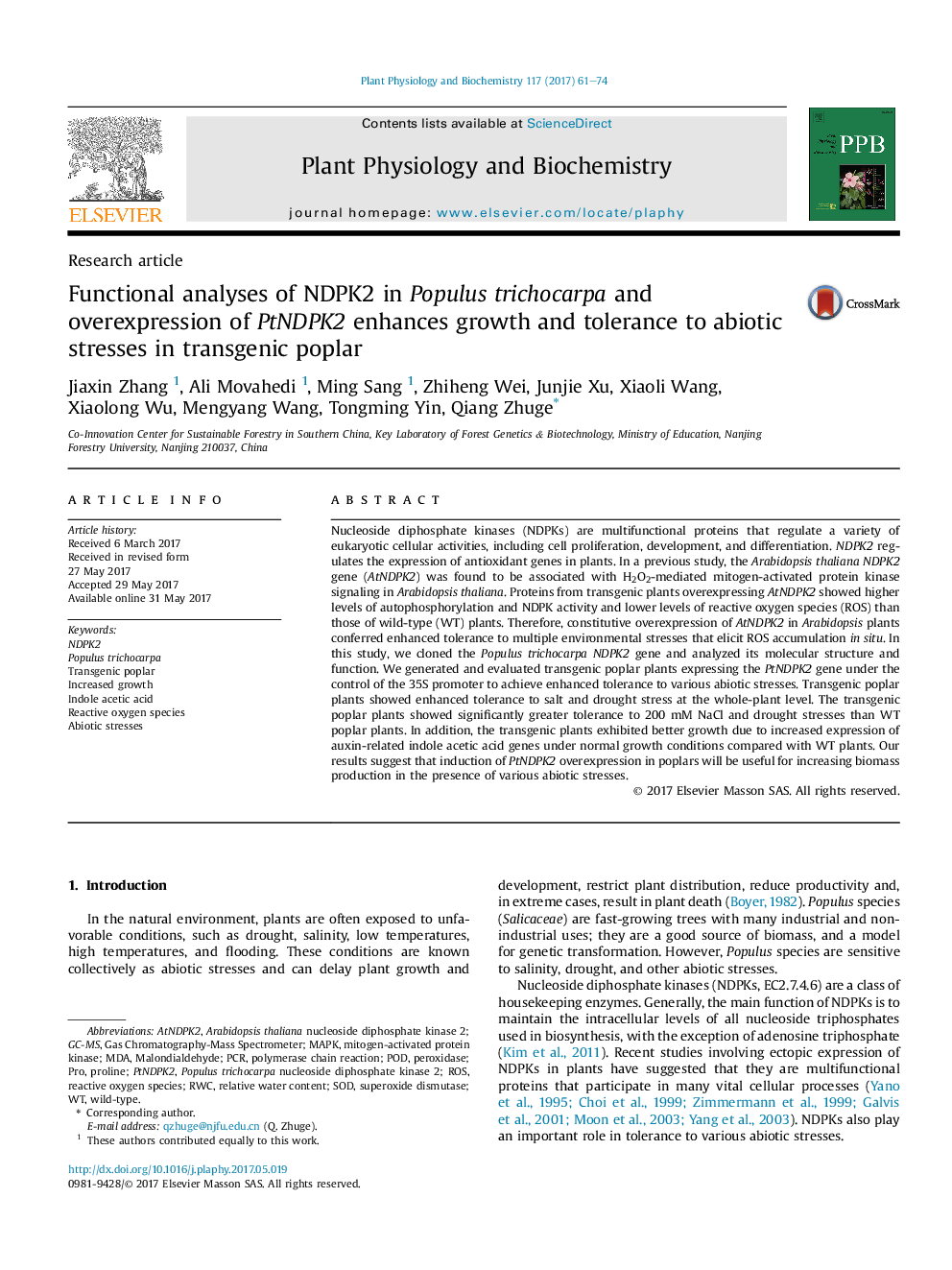| Article ID | Journal | Published Year | Pages | File Type |
|---|---|---|---|---|
| 5515569 | Plant Physiology and Biochemistry | 2017 | 14 Pages |
•PtNDPK2 was cloned and identified for the first time from poplar.•PtNDPK2 is a multiple copy gene, and expresses at high level in young leaves.•Multiple abiotic stresses induce PtNDPK2 expression.•PtNDPK2 overexpression enhances poplar growth and photosynthesis.•PtNDPK2 overexpression enhances poplar tolerance to abiotic stresses.
Nucleoside diphosphate kinases (NDPKs) are multifunctional proteins that regulate a variety of eukaryotic cellular activities, including cell proliferation, development, and differentiation. NDPK2 regulates the expression of antioxidant genes in plants. In a previous study, the Arabidopsis thaliana NDPK2 gene (AtNDPK2) was found to be associated with H2O2-mediated mitogen-activated protein kinase signaling in Arabidopsis thaliana. Proteins from transgenic plants overexpressing AtNDPK2 showed higher levels of autophosphorylation and NDPK activity and lower levels of reactive oxygen species (ROS) than those of wild-type (WT) plants. Therefore, constitutive overexpression of AtNDPK2 in Arabidopsis plants conferred enhanced tolerance to multiple environmental stresses that elicit ROS accumulation in situ. In this study, we cloned the Populus trichocarpa NDPK2 gene and analyzed its molecular structure and function. We generated and evaluated transgenic poplar plants expressing the PtNDPK2 gene under the control of the 35S promoter to achieve enhanced tolerance to various abiotic stresses. Transgenic poplar plants showed enhanced tolerance to salt and drought stress at the whole-plant level. The transgenic poplar plants showed significantly greater tolerance to 200 mM NaCl and drought stresses than WT poplar plants. In addition, the transgenic plants exhibited better growth due to increased expression of auxin-related indole acetic acid genes under normal growth conditions compared with WT plants. Our results suggest that induction of PtNDPK2 overexpression in poplars will be useful for increasing biomass production in the presence of various abiotic stresses.
